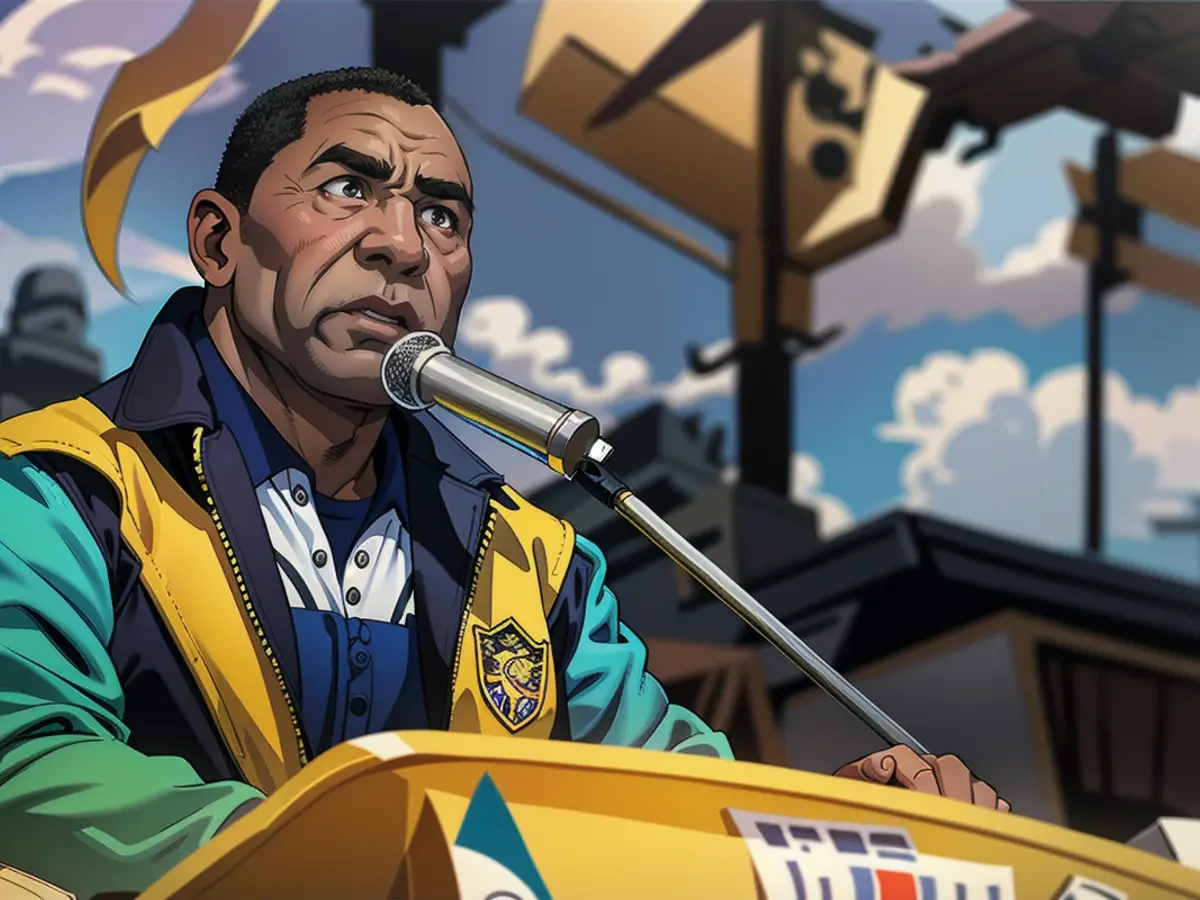The African National Congress (ANC) party in South Africa [receives or faces]… - For the first time in thirty years, the Mandela party experiences a loss of absolute majority.
The ruling South African party, the African National Congress (ANC), has lost its absolute majority in the recent parliamentary elections. This marks a significant shift for the party once led by anti-apartheid fighter Nelson Mandela, as it now has to form a coalition for the first time in the democratic history of the country. With 40.11% of the votes counted by the Electoral Commission (IEC), the party has lost a significant amount of power from the 57.5% it held in the 2019 parliamentary elections.
This represents the first time in 30 years that the ANC's political dominance is being questioned since the end of apartheid in 1994, and the first time it will need to make compromises in the name of governance. They have 14 days from the official announcement of the election results by the IEC to form a government and elect a president.
Two possible coalition partners have emerged: the economically liberal Democratic Alliance (DA), which according to the provisional results stands at 21.71%, and the Marxist-oriented Economic Freedom Fighters (EFF) at 9.37%. The DA is seen as a likely partner, despite their ideological differences, as they have already shown success on the provincial level, governing the Western Cape province since 2009, home to renowned tourist metropolis, Cape Town. Aleix Montana, a political analyst at risk assessment firm Verisk Maplecroft, predicts a likely alliance between the ANC and the DA, which would be welcomed by Western partners and foreign investors.
However, the other potential partner is the Marxist-oriented EFF, known for advocating for land expropriation without compensation and nationalization. The ANC and EFF are politically close as the EFF is helmed by former ANC Youth League chairman Julius Malema. Such a coalition could scare off investors, posing a potential risk to South Africa's stagnant economy and high unemployment. Political analyst Montana warns that this could be detrimental to the country's needs for economic growth.
The outcome of this decision holds significant implications for Germany and Europe, as South Africa is the most developed economy on the continent. It is seen as the "gateway to Africa", a combination of its status as a political and economic powerhouse amidst a growing continent in need of raw materials for the energy transition. In addition, South Africa is a member of the Group of Major Economies (G20).
Additionally, the ANC attributes its loss of power to its abysmal government record, with 61 million citizens expressing dissatisfaction through their votes. The country has made little progress in this regard, as seen in the dilapidated state-owned enterprises, unreliable power supplies, declining education and healthcare, high crime rates, and endemic corruption. The recent founding of former President Jacob Zuma's uMkhonto we Sizwe (MK) party may also contribute to the ANC's fall, as it received 14.8% of the votes.
As of now, the potential futures for the ANC are uncertain. The party is silent on the issue, but Deputy Secretary-General of the ANC, Momvula Mikonyane, did confirm that President Cyril Ramaphosa will not be resigning. It remains to be seen whether Ramaphosa will be re-elected as the country's leader by the newly elected parliamentarians. He has faced criticism for being ineffective due to internal power struggles during his six-year tenure, which saw him deposing Jacob Zuma, who was accused of plundering the state.
John Steenhuisen, the leader of the DA, sees the election results as a victory for South Africa's democracy, even as the government formation is still uncertain. "To save South Africa, we had to break the absolute majority of the ANC, and we have achieved that", he said.
Read also:
- The loss of absolute majority by the ANC in the parliamentary election could potentially impact South Africa's relations with Russia, given its historical support for the Anti-Apartheid movement.
- In Pretoria, the capital city of South Africa, the African National Congress (ANC) is currently grappling with the implications of its loss in the recent parliamentary election.
- The Democratic Alliance (DA), a potential coalition partner for the ANC, has expressed its optimism about the election results, suggesting a possible shift in the political landscape of the Western Cape, including in prominent cities like Cape Town.
- China, a significant economic partner for South Africa, might monitor the political developments closely, as the parliamentary election outcome could influence the country's economic policies.
- The African National Congress (ANC) party, led by President Cyril Ramaphosa, will need to navigate the post-election period carefully, given the DA and EFF's divergent positions on economic policies, such as nationalization and land expropriation without compensation.
- In the aftermath of the parliamentary election, opposition parties like the DA and EFF have called for accountability in addressing South Africa's economic challenges, including high unemployment, unreliable energy supplies, and corruption, which are often linked to the ANC's government record.
- South Africa's parliamentary election result has garnered worldwide attention, with analysts and observers tracking developments closely, as the outcome could potentially influence the country's approach to regional cooperation, including its active role in the Group of Major Economies (G20).








